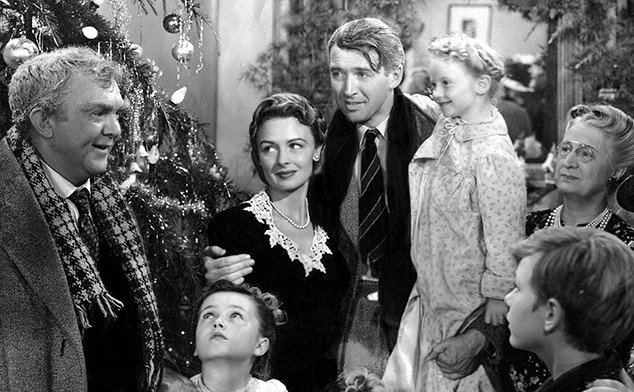
With the recent release of faith-provoking movies like Noah, Exodus: Gods and Kings, and even The Avengers: Age of Ultron, it wouldn’t hurt for us to take a step back and ask ourselves, how should we, as Christians, view movies? We tend to swing between watching everything and anything there is out there, and not watching anything because it is “unwholesome.”
Somewhere along the way, in trying to keep up with living holy and righteous lives that seek to honor Christ, Christians have wavered in their understanding of “not being of the world” and equated it to “blissful ignorance,” or just ignoring the question of right and wrong when it comes to entertainment. Instead of learning to be wary and mindful of the things that go in and out of our heads, people tend to just run away from “objectionable” material and not watch anything at all, or make special exceptions in our standards and values for things like movies, because “Let’s face it, if we don’t make exceptions, then all that’s left as “permissible” to watch is VeggieTales, right?”
Wrong. Because there is a way we can watch movies and enjoy productions that are released from this multibillion industry we call Hollywood, and still remain steadfast in our thoughts and actions without making exceptions. It is possible to still glorify and honor God despite our love for motion picture.

In my family, my father loves movies, while my mother has a strong aversion towards them, as it is her personal conviction not to fill her mind with “nonsense.” To her, she can get enough of what she needs to know from books and the Internet. Thankfully, while she was strict about asking for permission before turning on the TV in our younger days, she never prevented me and my sister from watching movies that did not go against our judgment.
What my parents did was that they brought us up in the ways of the Lord so that when it came to things like watching movies and reading books, we knew when something was good for us, and when we needed to shut them off. Going to the movies eventually became a tradition for me, my father, and my sister to go on “date nights with dad,” while mom stayed home or did her own work at a kopitiam. Occasionally when a particularly good movie comes out, we are able to persuade her to join us and she does, in her own way, appreciate undeniably good movies that are worth her time.
Due to the contrasting attitudes towards film between my parents, I believe I was brought up with a good balance. My mother developed my love for books, my father got me hooked on high-strung action movies, and my preference for chick-flicks and sweet little romances was something I acquired later on my own. That being the case, our home was never one that had the TV blaring 24/7 and yet, I developed a great appreciation for film. For that, I am thankful.

Because of my mother’s skepticism towards Hollywood, I was always careful of what I was watching. Whenever I was at my grandmother’s house with free access to my aunt’s movie collection, I knew even at a young age what kind of movies I could indulge in and what kind of movies I should stay away from. It was not a physical authority telling me what to watch and what to not watch, but my conscience that spoke to me, loud and clear.
As I got older and began to better understand the material I was taking in, I also began to glean from the movies I watched. What was once pure enjoyment began to make more sense in other areas that I never noticed before as a younger child.
That being said, when it comes to drawing standards towards film as a Christian, I have come to the firm conclusion that as long as we do not disgrace the name of the Lord through the things we watch, there is always something that can be learned. There is something about film that captures life so realistically that everything – the good, bad, beautiful, and ugly – is blatantly portrayed.

While some people may claim that any movie with unpleasant content should immediately be ruled out as “bad,” I prefer to take the stance that unpleasant content is sometimes the very thing that causes beauty to emerge. It is in the depravity and ugliness of humanity and our actions that the wonder of the Gospel is that much more powerful. When films draw attention to how badly in need of a savior this world is and emphasizes the redemptive value in “goodness” although not specifically Christ Himself, Christians are able to see the parallels and give praise to God for His faithfulness. In this light, watching a movie could even be an act of worship.
In addition, when we take into consideration the skills, talents, and creativity that are needed in making a film, we are farther able to appreciate the creativity of God Himself. Being created in the image of God, when we use our artistic abilities to express ourselves, God can receive honor and glory. Different filmmakers express themselves differently and although some of them only ever produce bleak and depressing movies, there are still elements in the movie itself that can be drawn out and seen as beautiful.
Film captures truth—albeit in a staged environment—and truth is beauty. Although truth can at times be painful and unpleasant, it ultimately points back to the Truth that Christ died for sinners and that is Beauty as has never been seen. Therefore, in many ways, film can be seen not only as a way of capturing beauty that God has created through the recreation of reality, but also as a response to beauty that has been seen and portrayed by another human being. It is a shared experience of the human condition and beauty that can be found in the midst of immorality and perversity.

At the same time, Christian parents should also be on guard of what their children are watching, as images and the spoken word are easily ingrained in young minds. As children grow older and mature emotionally, socially, and spiritually, they can be increasingly exposed to certain material that they really ought to be protected from at younger ages. Like it or not, a more mature viewer would be able to understand a certain scene within the context of the setting, and properly respond to it.
Young viewers, on the other hand, absorb everything they see and hear like a sponge. Even though I had a firm sense of right and wrong, I still remember the first sex scene I saw in a movie in which I realized too late that I needed to turn it off. For the longest time, that single image haunted me. Now that I have been exposed to many similar scenes, that particular one is no longer in the foreground of my mind—nevertheless, it will forever remain in my memory. For this reason, I am a firm advocate for film censorship and ratings. Although I turned out fine, there is a part of me that feels like my childhood innocence was somewhat violated, as I saw something I should not have seen.
Christians should not shy away from the film industry simply because there are things included in film that are not considered to be “Christian.” On the contrary, Christians should be well informed and educated about the film industry and know movies well enough to talk about them so that when a non-Christian asks about a certain film, the Christian knows how to give a credible response from a Christian perspective.

At the same time, we also have the Holy Spirit within us to help us discern between watching with a purposeful attitude and simply wallowing in sin. An easy gauge would be to ask the question, “Would I watch this movie with Jesus sitting beside me?” Ultimately, it is important for the Christian to understand that this world is fallen and there is no getting away from it.
To try to stay away from any and all exposure to sin would be equivalent to trying to breathe in pure oxygen without all the other gasses in our air. Being disturbed by the sin that is portrayed on the screen and becoming further encouraged to share the love of Jesus to the lost is completely different from watching and drinking in the sinful acts in the film and enjoying them. The fine line which separates these different views is the defining factor between Christian and unchristian when it comes to watching a movie.
|Share The Good News|
Esperanza Ng

Leave a Reply